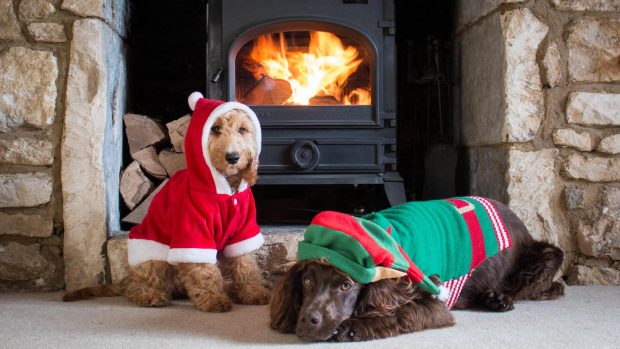Dog theft is a cruel crime. It causes owners untold distress. Pippa and William Funnell were devastated when their two terriers, Fudge and Toes, were stolen in 2002. Despite huge efforts to track them down, and the offer of a reward, they were never recovered.
“The worst thing about dog theft is not knowing where your dogs are or how they’re being treated,” says vet Kin Lundberg-Young, who lost two microchipped Miniature Long-Haired Dachshund bitches from her stud near Warminster. Kin’s experience highlights a particular — and all too common — problem.
“I’m sure my dogs were stolen,” she says, “because they couldn’t have got off our land; a hunt terrierman scoured the area immediately and found nothing, and our other two dogs, which were with them but didn’t disappear, were traumatised. We got zero help from the police, despite several reports of sightings of them with a woman whose description is always the same.”
There are countless other people who are convinced that their dogs have been stolen, but unless a dog is seen or can be proven to be stolen, it will be classified as “missing”, and you can’t get a crime number from the police. There are no national figures available for dog theft.
“It’s difficult, if not impossible, to quantify,” says PC Peter Hale, of Thames Valley Police’s Country Watch. “A lot goes on we don’t hear about, and dog theft is simply recorded under the category of general theft. The way crime figures are written down keeps changing, and statistics don’t show much because there are so many ways of interpreting them.”
PC Andy Baker, traveller liaison officer with South Yorkshire Police, says: “It’s a big problem here but, unfortunately, from our perspective missing or stolen dogs come low on the list of priorities, as people have a load of work, busy shifts and no time or flexibility.”
One can partly sympathise — the police are under pressure and under-resourced — but the truth is that because dog theft is not categorised or recorded as a separate crime, there is no official recognition of the type or scale of the problem.
So, as PC Baker says: “Dog theft is regarded as a relatively risk-free crime, for easy money and no hassle.”
Stolen Lurcher pups go for about £80; a working Springer Spaniel can fetch £3,000, and the value of a Crufts champion bitch stolen recently in Shropshire was estimated at £50,000. Special Branch did get involved with that case and the dog was recovered.
Public opinion is beginning to run high — and not just because the subject has received more publicity recently. People are frustrated by what they see as the police’s unwillingness, or inability, to tackle the problem.
Dogs are stolen for breeding, ransom, illegal coursing and fighting, plus, increasingly, for drugs money. The most “popular” breeds are Lurchers and sighthounds, terriers, Border Collies, Labradors, spaniels, Staffordshire Bull Terriers and guard-type breeds.
Dogs are taken countrywide, although there are particular hot-spots — south Derbyshire, north Nottinghamshire, Cambridgeshire and around Doncaster — but the very worst area is the south-east, particularly Kent.
The help people get from police seems to depend on the luck of the draw. One Buckinghamshire couple told Horse & Hound they found police very helpful in getting photos and descriptions out to vets over a wide area, but unfortunately this is not always the case.
PC Hale suggests: “Rural people, who are naturally polite and self-sufficient, should scream and shout more. Be polite, but firmer with police. Keep pressing. You’d expect service if your car had been nicked, and a dog is classified exactly the same [dogs come under the Sale of Goods Act], plus they’re more valuable to you.”
So how do you keep your dogs safe? Dogs are stolen from vehicles, secure runs and kennels. Tracy Barnes, from Cambridgeshire, lost three Lurchers after thieves smashed her back door down when she went out briefly. On a farm or busy yard, it can be hard to keep track of dogs, as thieves know all too well.
“Value them more,” says PC Hale. “Do your best to keep them in sight. Don’t tie them up to loose-boxes.”
Be wary of strangers, especially if there has been a run of enquiries about rabbiting, casual work, etc, and be evasive if anyone comments on your dog. Opinions differ on microchipping, with tattooing often rated higher as they are easily visible.



